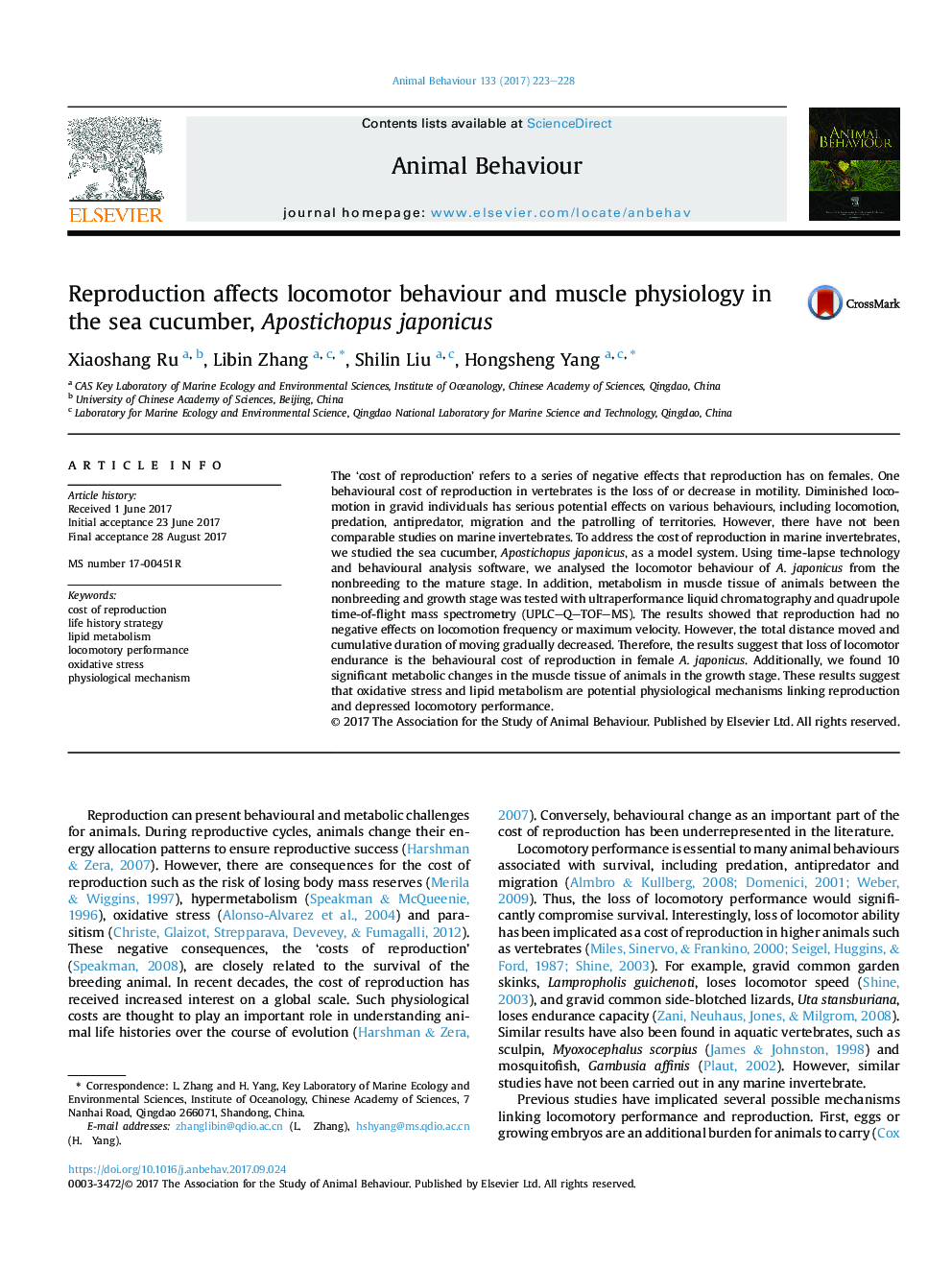| Article ID | Journal | Published Year | Pages | File Type |
|---|---|---|---|---|
| 8488833 | Animal Behaviour | 2017 | 6 Pages |
Abstract
The 'cost of reproduction' refers to a series of negative effects that reproduction has on females. One behavioural cost of reproduction in vertebrates is the loss of or decrease in motility. Diminished locomotion in gravid individuals has serious potential effects on various behaviours, including locomotion, predation, antipredator, migration and the patrolling of territories. However, there have not been comparable studies on marine invertebrates. To address the cost of reproduction in marine invertebrates, we studied the sea cucumber, Apostichopus japonicus, as a model system. Using time-lapse technology and behavioural analysis software, we analysed the locomotor behaviour of A. japonicus from the nonbreeding to the mature stage. In addition, metabolism in muscle tissue of animals between the nonbreeding and growth stage was tested with ultraperformance liquid chromatography and quadrupole time-of-flight mass spectrometry (UPLC-Q-TOF-MS). The results showed that reproduction had no negative effects on locomotion frequency or maximum velocity. However, the total distance moved and cumulative duration of moving gradually decreased. Therefore, the results suggest that loss of locomotor endurance is the behavioural cost of reproduction in female A. japonicus. Additionally, we found 10 significant metabolic changes in the muscle tissue of animals in the growth stage. These results suggest that oxidative stress and lipid metabolism are potential physiological mechanisms linking reproduction and depressed locomotory performance.
Keywords
Related Topics
Life Sciences
Agricultural and Biological Sciences
Animal Science and Zoology
Authors
Xiaoshang Ru, Libin Zhang, Shilin Liu, Hongsheng Yang,
